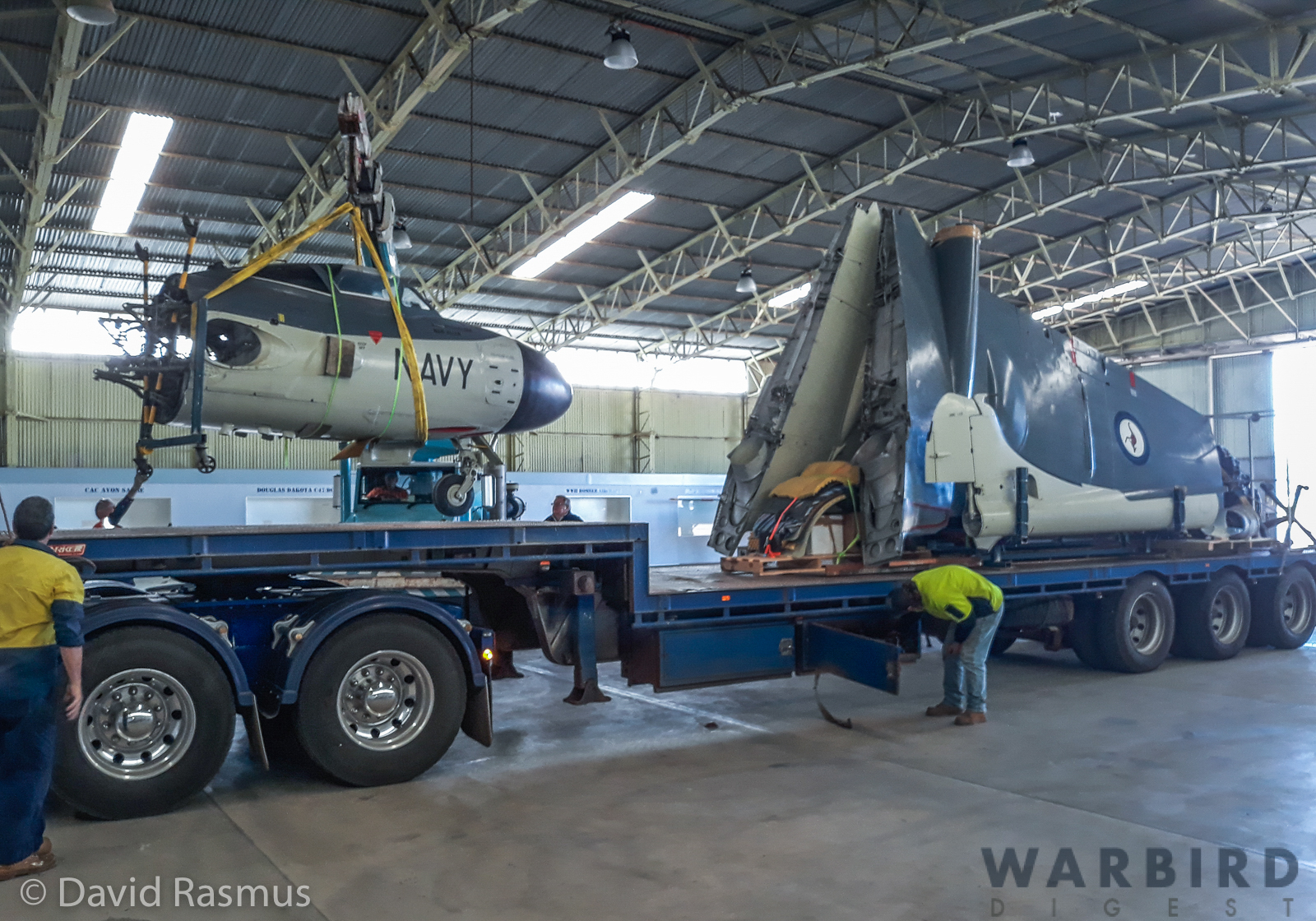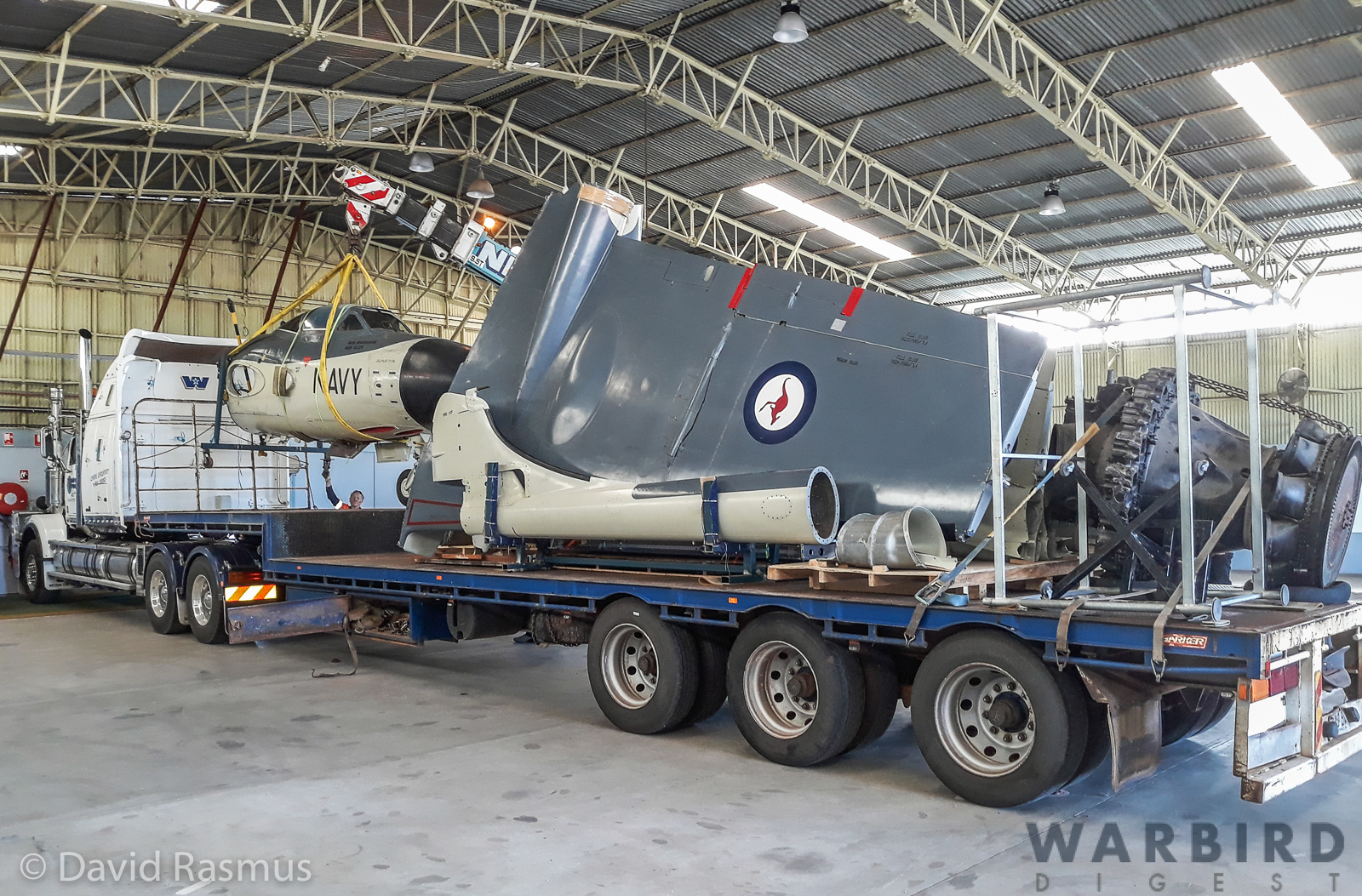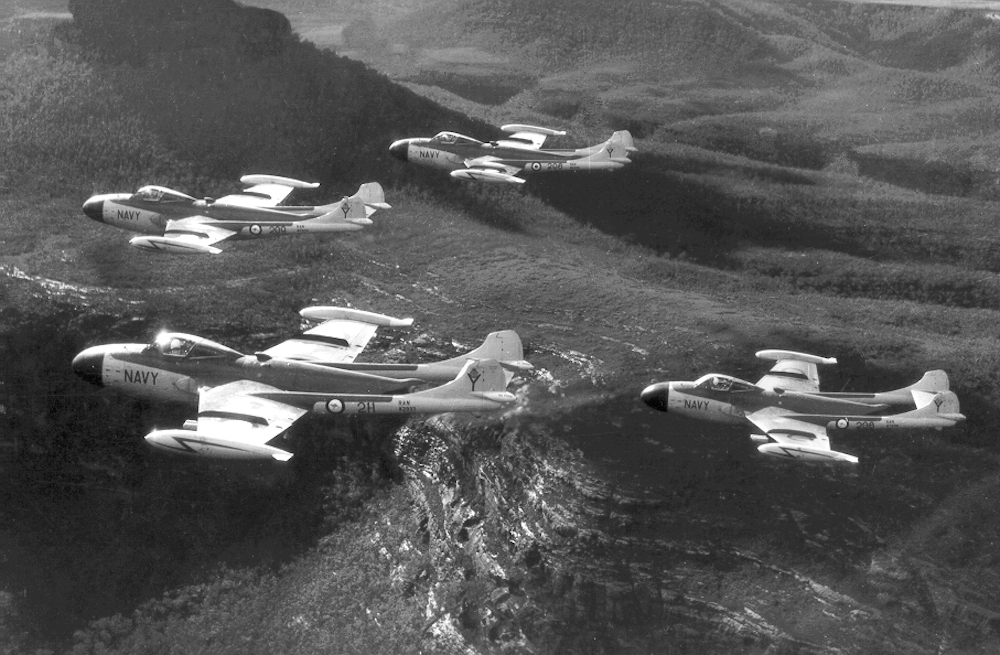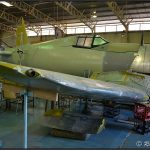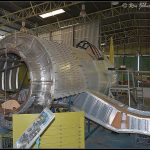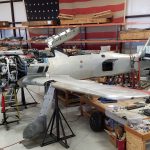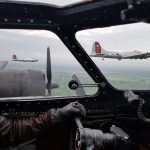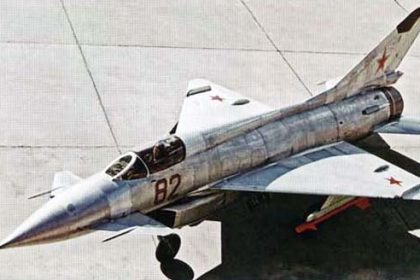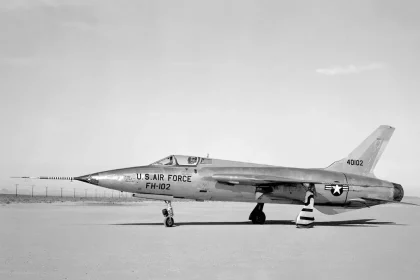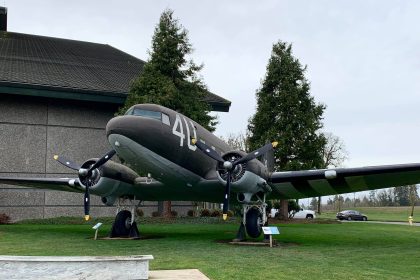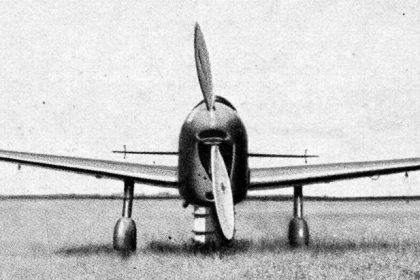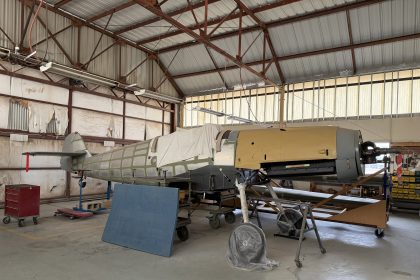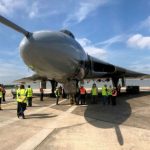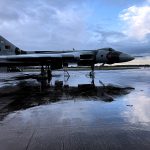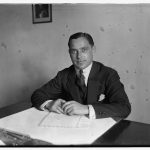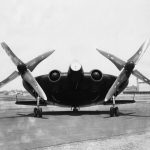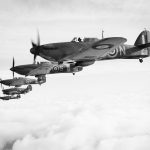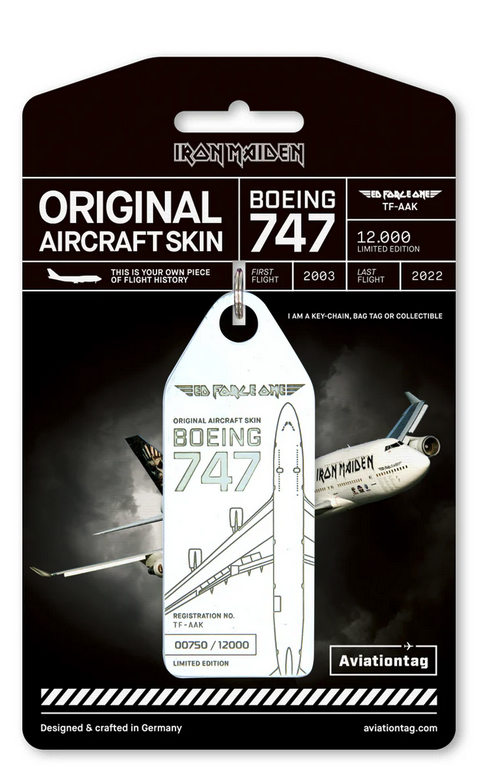Sadly, in mid-July, a final auction took place to sell off the artifacts from the now-shuttered Classic Jets Fighter Museum (CJFM) at Parafield, South Australia. Readers might recall this once vibrant museum being the home for a number of significant vintage military aircraft, including combat veteran Vought F4U-1 Corsair Bu.02270, the restoration of which we have covered on a number of occasions. The museum’s founder, Bob Jarrett, still retains this aircraft, and has moved it and the remnants of the CJFM to another hangar on the airfield adjacent to the former museum building. The restoration is ongoing, to static condition, but the doors of this much smaller facility remain open to the public six days a week. However, pretty much everything else has now been sold on.
We learned recently, from our good friend and regular reporter Phil Buckley, that the last of museum aircraft has now left the old hangar for pastures new. Phil sent us a pair of photographs taken by Dave Rasmus which show de Havilland Sea Venom WZ939 inside the now empty museum hangar as a transport team loaded the now-dismantled naval fighter aboard a flat bed truck. Unfortunately, details remain a little vague about quite where this beautifully restored Sea Venom is heading, nor to whom she now belongs, but we will bring the news to you once we hear more.
Built by de Havilland in the UK, Sea Venom FAW.53 WZ939 served in the Royal Australian Navy as N4-939, and flew with 808 Squadron from the aircraft carrier HMAS Melbourne (the former Royal Navy carrier HMS Majestic) during her service career as an all-weather fleet defense fighter. The RAN took delivery of the Sea Venom, along with a number of others of the type in Glasgow, Scotland during February, 1956. They loaded the aircraft aboard the newly-commissioned carrier, Australia’s second such vessel, and sailed for home in March.
Sea Venoms served in the RAN until 1967, replaced by the Douglas A-4 Skyhawk. Following military service, WZ939 ended up on a pole outside the Gold Coast War Museum in Coloundra, Queensland. She then moved to another pole-top perch at Tuggarah Lakes, New South Wales. Outdoor display is never a good way to preserve an aircraft, especially one with a plywood fuselage pod, so WZ939 was in pretty rough shape by the time that Classic Jets acquired her in late 1993. Museum volunteers put an enormous amount of effort into the restoration though, and she still shines with that same love and care today. Hopefully she will receive similar love and care at her new home.
Many thanks to Phil Buckley for alerting us to the news and to Dave Rasmus for the photos!







